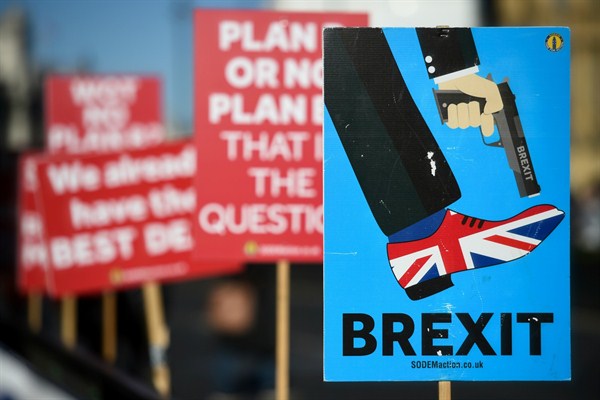British Prime Minister Theresa May suffered a humiliating defeat earlier this month when Parliament voted by an overwhelming margin to reject the Brexit deal she had negotiated with the European Union. Yet there doesn’t appear to be a Plan B.
Many are now betting that May will request a delay for Britain to leave the EU beyond the deadline of March 29, which May triggered in March 2017 by invoking Article 50 of the Lisbon Treaty and beginning the exit process. But the odds of a no-deal breakup also went up this month, despite fears that that outcome could lead to immediate delays in shipments and shortages of some foods and medicines. In the longer run, the current impasse reflects the fact that there are no easy answers. Assuming Brexit goes forward one way or the other, its costs could be felt for years.
British trade negotiators will play a major role in determining the size and distribution of those costs. A major reason that Brexit’s most adamant backers favor a “hard Brexit” is so the United Kingdom can negotiate its own trade deals, including with countries, such as the United States, with which the EU does not currently have free trade agreements. But those hard-liners may not have spent enough time with the trade statistics, to put it mildly, and may not yet realize just how daunting the trade policy agenda will be post-Brexit.

